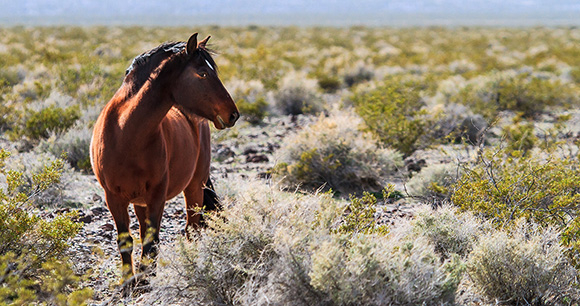
Washington, DC—Today, 64 members of Congress sent a bipartisan letter to US Department of Agriculture Secretary Sonny Perdue and US Forest Service Chief Vicki Christiansen objecting to the Forest Service’s impending plan to sell federally protected wild horses without restrictions on slaughter.
Last fall, the Forest Service announced that it would round up California’s largest herd of wild horses from the Devil’s Garden Plateau Wild Horse Territory in Modoc National Forest. It subsequently removed close to 1,000 of these horses. The agency indicated it intended to sell some of the animals “without limitation” on slaughter and for as little as $1 each, clearing the path for individuals who seek to profit from selling horses to slaughterhouses in Canada and Mexico to obtain these horses at almost no cost.
Congressman Ted Lieu (D-CA) led the letter, signed by 64 representatives, objecting to this plan. As explained in the letter:
“We are deeply troubled by this proposal as it represents a severe abdication of the government’s responsibility to manage these federally protected horses humanely … These horses are beloved icons in the country, and Americans overwhelming oppose horse slaughter. The Forest Service’s proposal would put wild horses at risk of being killed for food, and goes against California’s existing law prohibiting the sale or transfer of horses for human consumption.”
Senators Dianne Feinstein (D-CA) and Kamala Harris (D-CA), California Attorney General Xavier Becerra and 23 members of the California state legislature have also written to the USDA to voice concerns with the Forest Service’s plan.
“It’s appalling that a federal agency would abandon its responsibility to protect wild horses from this gruesome fate,” said Joanna Grossman, Ph.D., equine program manager for AWI. “Americans undeniably and overwhelmingly cherish these animals. For our wild horses to end up as horsemeat in foreign supermarkets is unconscionable. The option to sell federally protected horses as cheaply as possible and with no restrictions on slaughter should not even be under consideration.”
Sydney Hearst, (202) 446-2128, [email protected]